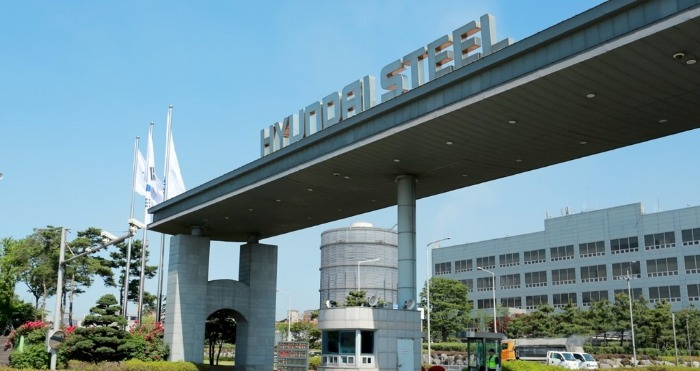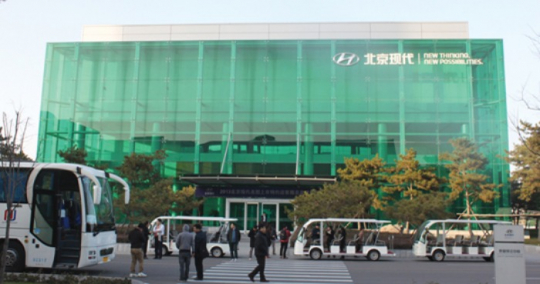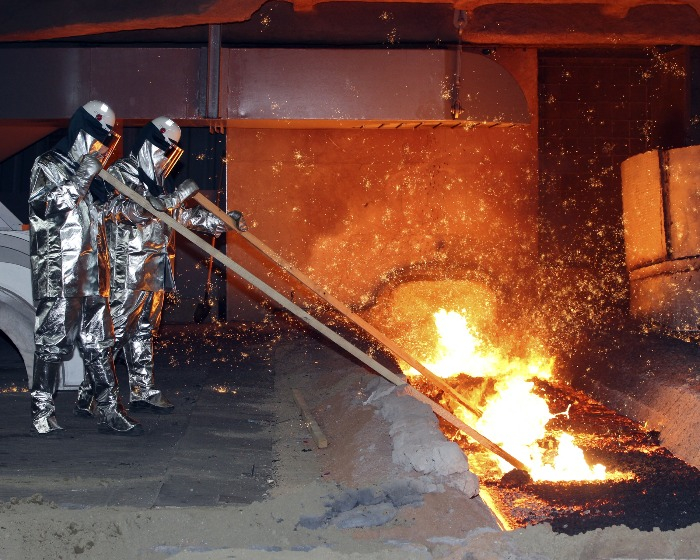Steel
Hyundai, other Korean steelmakers slim down Chinese units
The Hyundai Motor Group arm is also speculated to slash operations in Tianjin, China
By Mar 15, 2023 (Gmt+09:00)
2
Min read
Most Read
LG Chem to sell water filter business to Glenwood PE for $692 million


Kyobo Life poised to buy Japan’s SBI Group-owned savings bank


KT&G eyes overseas M&A after rejecting activist fund's offer


StockX in merger talks with Naver’s online reseller Kream


Mirae Asset to be named Korea Post’s core real estate fund operator



Hyundai Steel Co. has decided to sell its Beijing arm, worth 400 billion won ($310 million) in asset value, hit by declining sales of its affiliates and key customers Hyundai Motor Co. and Kia Corp. in the world's largest automobile market.
Hyundai Steel is now carrying out due diligence on Hyundai Steel Beijing Process Co. with its potential buyer, according to people familiar with the matter on Wednesday.
Its plant has been at a full stop since last year. Real estate accounts for almost all of the Beijing arm's assets.
The Beijing unit has supplied automotive steel to both Hyundai Motor and Kia after reprocessing steel sheets produced in South Korea.
Since its inception in 2002, it has posted a steady stream of operating profit in the range of 10 billion and 20 billion won until 2016. But it suffered a net loss of 49.6 billion won in 2021.
The planned sale also comes as Chinese steel producers are catching up fast to their South Korean rivals with various types of products, which are competitive enough to sell in South Korea, said a steel industry official.

As it is trying to slim down Chinese operations, market speculation is that Hyundai Steel might slash operations in its Tianjin arm as well.
The Tianjin unit logged a net loss of 28.2 billion won last year, following the 20.3 billion won shortfall the year previous.
Its debt-to-equity ratio skyrocketed by 1,035.7 percentage points to 1,549.2% as of end-2022.
China's decision in 2016 to impose restrictions on South Korean imports has taken a heavy toll on Hyundai and Kia. The country has not yet fully reopened its market to South Korean products in retaliation for Seoul’s deployment of a US Terminal High Altitude Area Defense System (THAAD).
Hyundai Motor’s market share in China has dwindled to 1.2% as of end-September of last year. That compares to 1.8% in 2021; 2.3% in 2020; 3.1% in 2019 and 3.4% in 2018.

OTHER KOREAN STEELMAKERS IN SAME BOAT
Hyundai Steel is not alone in reducing exposure to China.
Dongkuk Steel Mill Co. sold a 90% stake in Dongkuk Steel China to the Jiangyin municipal government in Jiangsu last year.
The same year, POSCO Holdings Inc. set up a 50:50 joint venture with a Chinese steelmaker to produce automotive steel in Guangdong, instead of establishing its wholly owned unit there.
“Chinese steelmakers have significantly improved technology competitive enough to produce various types of steel products, said the steel industry official. “South Korean steelmakers will face stronger headwinds in China, going forward.”
Write to Ik-Hwan Kim at lovepen@hankyung.com
Yeonhee Kim edited this article
More to Read
-
 SteelDongkuk Steel to develop carbon-saving hyper electric furnace
SteelDongkuk Steel to develop carbon-saving hyper electric furnaceFeb 24, 2023 (Gmt+09:00)
1 Min read -

-
 AutomobilesHyundai Steel supplies high-strength steel for Genesis G80 EV, G90
AutomobilesHyundai Steel supplies high-strength steel for Genesis G80 EV, G90Feb 11, 2022 (Gmt+09:00)
2 Min read -
 EarningsKorean Dongkuk Steel profits surge as Brazil CSP turns profitable
EarningsKorean Dongkuk Steel profits surge as Brazil CSP turns profitableFeb 11, 2022 (Gmt+09:00)
1 Min read
Comment 0
LOG IN


